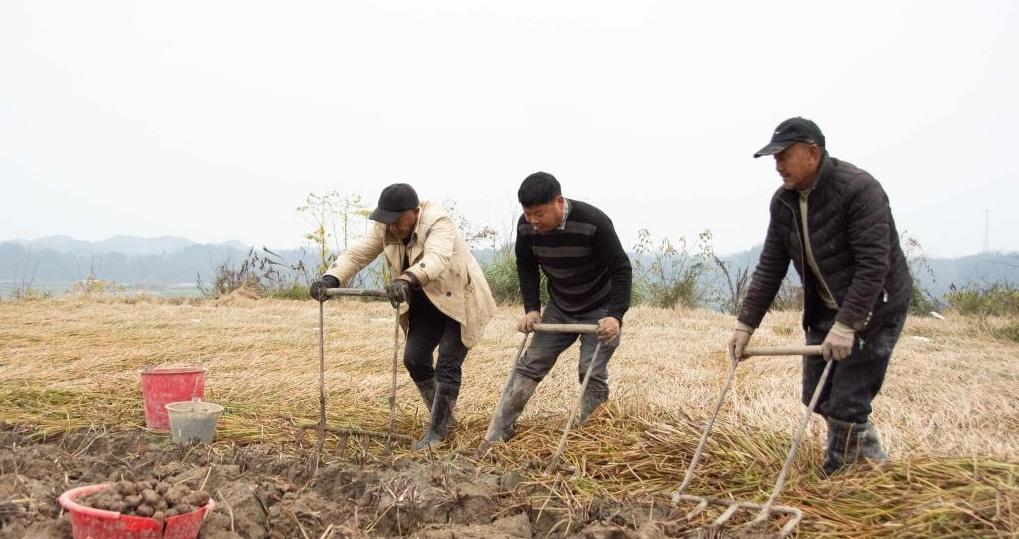Array of specially tailored projects invigorate Xiangxi Tujia and Miao Autonomous Prefecture
China.org.cn By Jin Ling, February 26, 2024 Adjust font size:
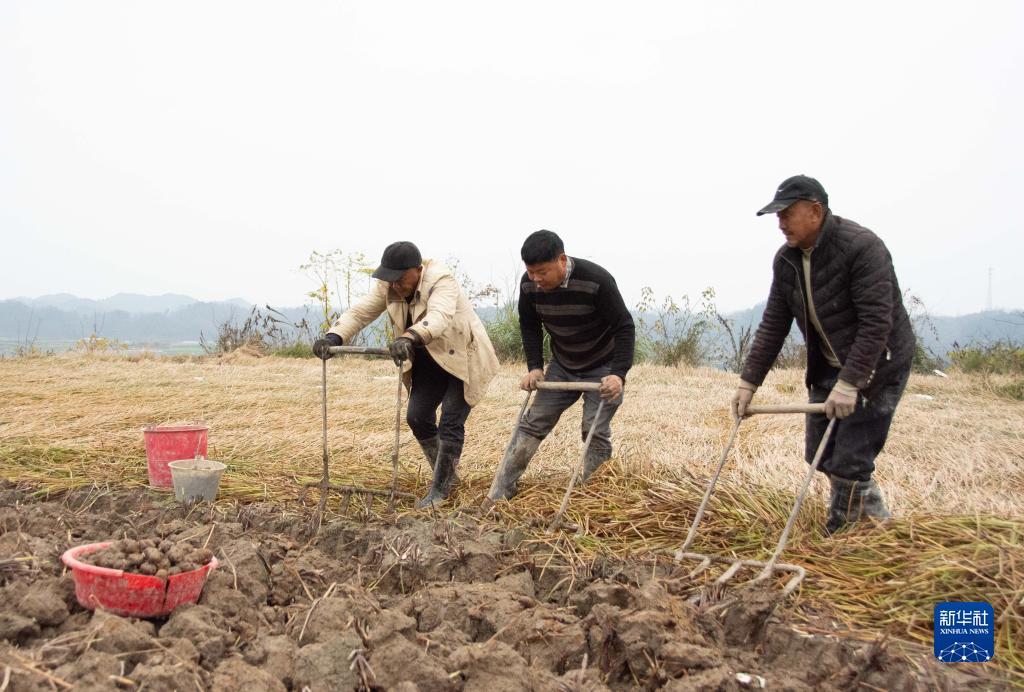
Wuguoliu village, Pushi town, Luxi county, Xiangxi Tujia and Miao Autonomous Prefecture, Hunan province, resident Yao Wenzhong (middle) harvests water chestnuts. (Liu Wangmin/Xinhua)
Located in the heart of the Wuling Mountains, Hunan province’s Xiangxi Tujia and Miao Autonomous Prefecture has been pursuing an array of rural vitalization-oriented projects specially tailored to the conditions present in its formerly impoverished villages ever since the longstanding widespread poverty that existed in its borders was finally eliminated in 2020. The transformation that Wuguoliu village, Pushi town, Luxi county, has been experiencing typifies the campaign and the outcomes that are occurring in the areas that are involved.
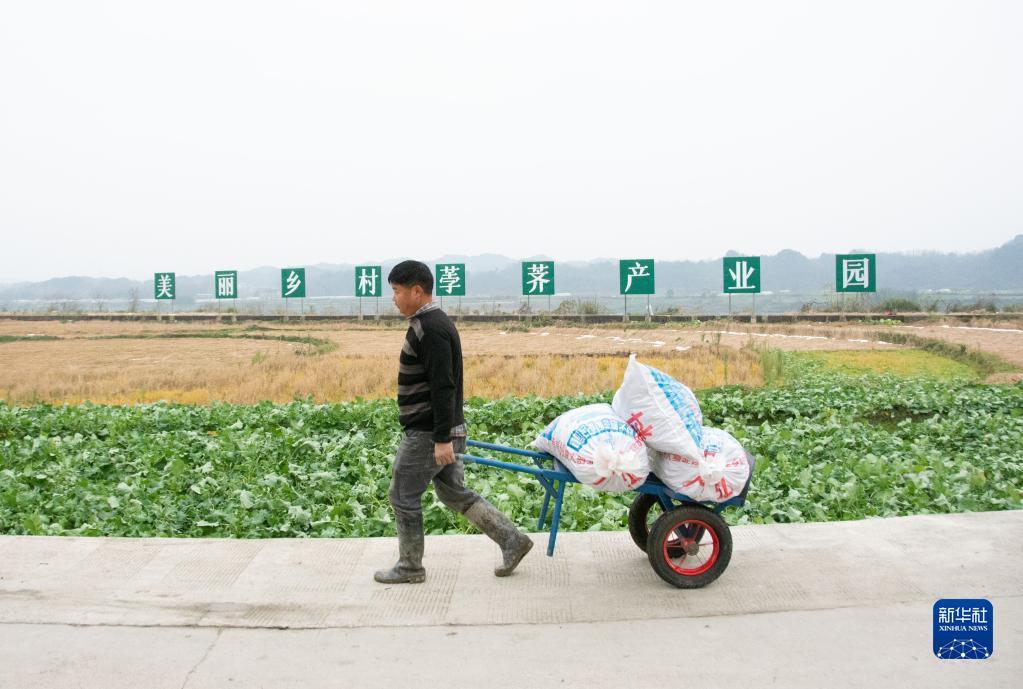
Yao hauls bags of freshly harvested water chestnuts. (Liu Wangmin/Xinhua)
Water chestnuts are currently being cultivated on more than 20 ha’s worth of land in the hamlet, and a rural vitalization team tasked with assisting it has been helping growers improve quality and yields and pursue new sales channels.
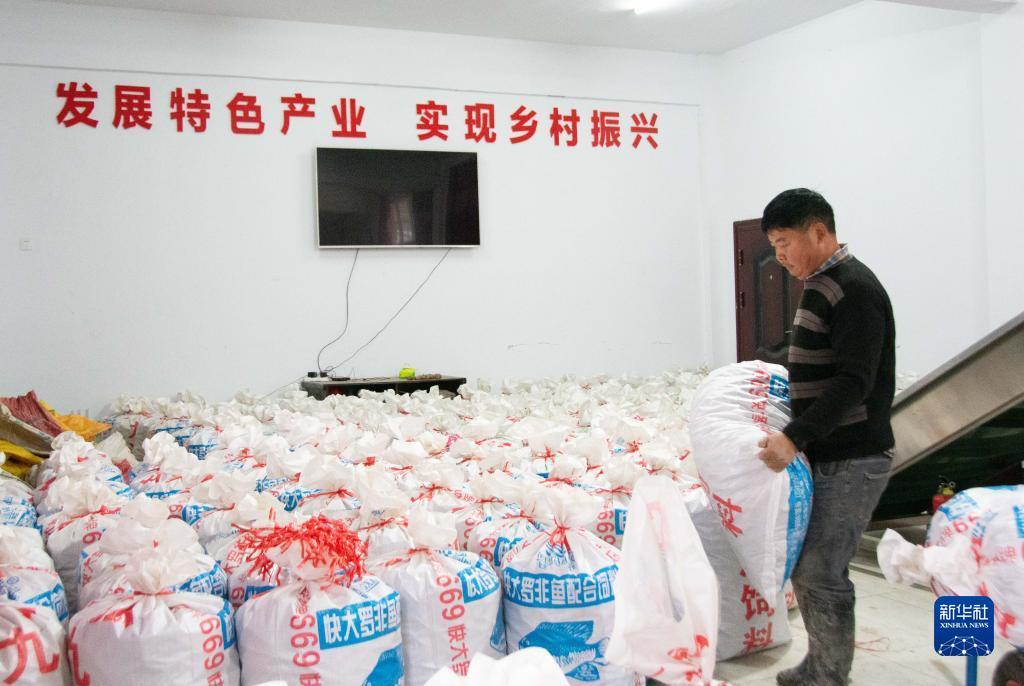
Yao unloads bags of freshly harvested water chestnuts in a warehouse. (Liu Wangmin/Xinhua)
Part of the work that Wuguoliu’s rural vitalization team is engaged in involves helping residents increase the efficiency of their traditional industries and the profit that they generate.
“Comprehensive measures designed to meet various objectives must be developed if rural vitalization is to be realized after poverty is eliminated,” remarked Department of Agriculture and Rural Affairs of Hunan Province official Xu Feiliang, who also serves as Wuguoliu’s first secretary and leader of its rural vitalization team, recently.
The rural vitalization team has carefully developed specific actions for Wuguoliu to take, and its members, drawing on their agricultural expertise, provide training for the village’s residents.
“We established a 0.2-ha water chestnut test plot for the purpose of determining the best ways to boost quality and yields,” rural vitalization team member and Hunan plant protection expert Zheng Hebin explained recently. “It currently serves as an educational plot that people visit in order to study and observe.”
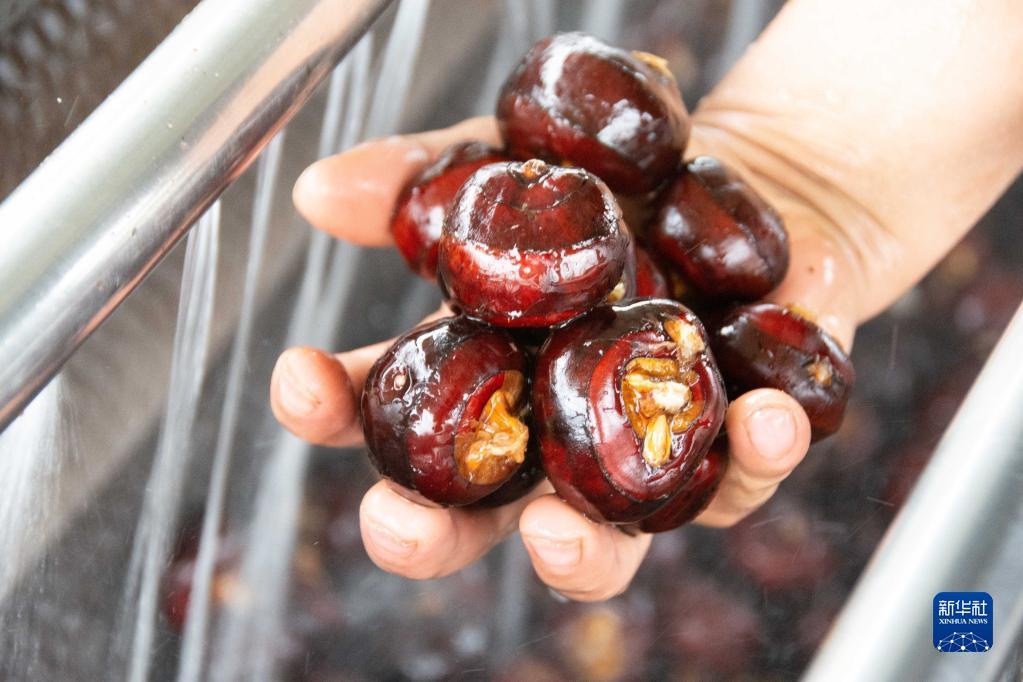
Yao displays freshly washed water chestnuts. (Liu Wangmin/Xinhua)
“I grow water chestnuts on about 0.73 ha of land and expect to achieve 37,500 kg of output per ha at present, which is 11,250 kg more than last year,” Wuguoliu resident Yao Wenzhong mentioned during harvest season last winter.
The farmer also noted that he has grown the plant for many years and that the quality of his crop and the yields that he achieves have been improving as a result of the technical guidance and support that he receives from the rural vitalization team stationed in the village.
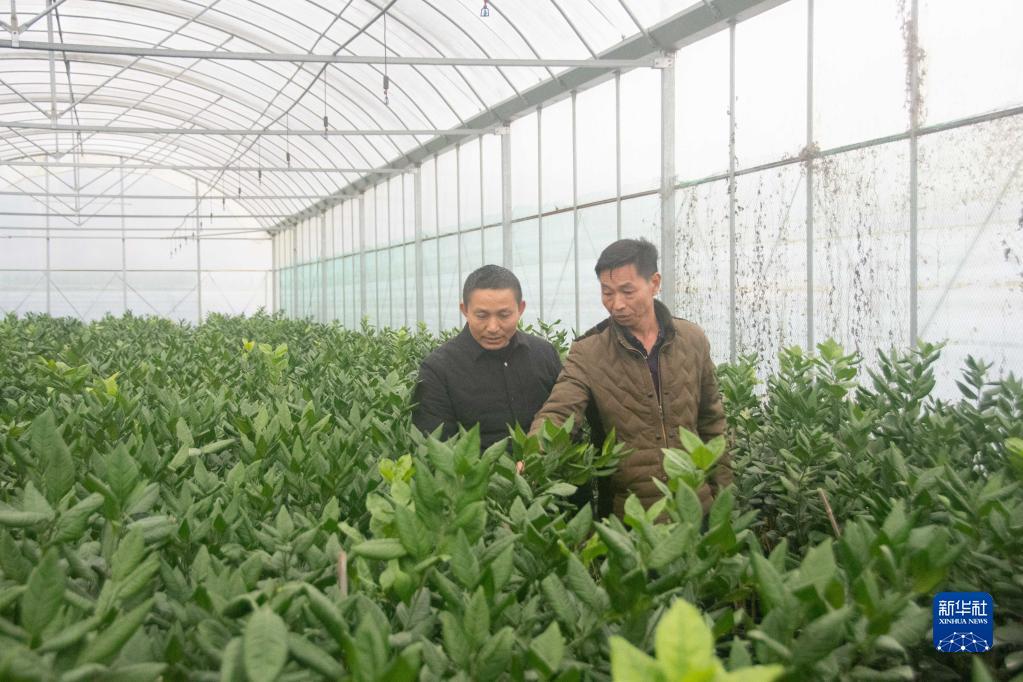
Yang Gangxu (left), a major Wuguoliu-based citrus grower, monitors the growth of the saplings at his nursery. (Liu Wangmin/Xinhua)
A traditional undertaking in western Hunan, citrus farming has a long history and is very popular in the province. An important goal of Wuguoliu’s rural vitalization team involves strengthening the village’s citrus industry by establishing a characteristic sapling base and growing better varieties of the tree.
Yang Gangxu, a major Wuguoliu-based citrus grower, recently stated that he was able to upgrade his 8-ha citrus farm and improve the quality of the fruit he produces with the help of the rural vitalization team, noting that new sanitization tanks, greenhouses, and testing rooms have been built and improved research and development of new varieties is now occurring and concluding that these efforts have made the produce that is produced in the area more competitive and led to more than 40 Wuguoliu residents becoming employed at the base.
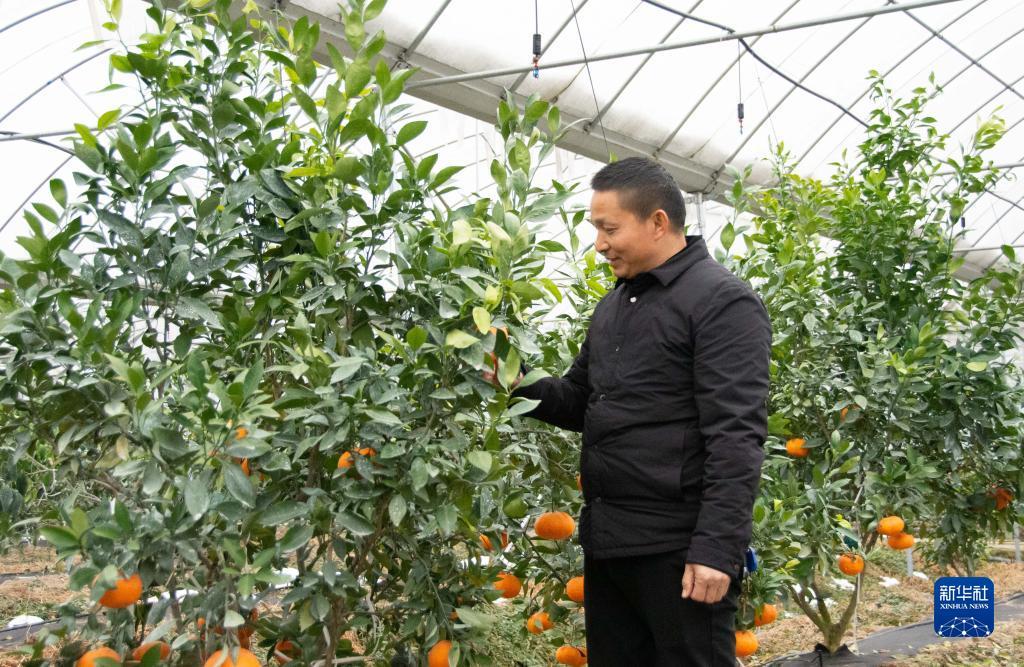
Yang monitors the growth of some of the citrus trees at his nursery. (Liu Wangmin/Xinhua)
Wuguoliu’s rural vitalization team came up with a list of 27 projects related to areas such as agriculture, living environment improvement, agritourism, and infrastructure that are designed to invigorate the village after assessing the situation in its borders and conducting various research and devised detailed plans covering the scale, implementation process, expected costs, duration, and likely outcomes of each.
Some of the projects, such as those involving aquaculture, greenhouse fruit farming, and construction of a local section of a hiking trail that is taking shape near a tributary of the Gan River that flows eastward through Luxi and into Jiangxi province known as the Yuanshui River, help Wuguoliu develop and strengthen its collective economy and transform into a characteristic prospering scenic village by taking advantage of its favorable environmental resources.
A total of 24,021 people working at government offices, enterprises, and public institutions were serving on 10,253 rural vitalization teams in Hunan’s formerly impoverished villages as of early May 2021. The people who live in them are increasing their incomes and changing their lives as the province’s vast countryside gradually becomes invigorated.
